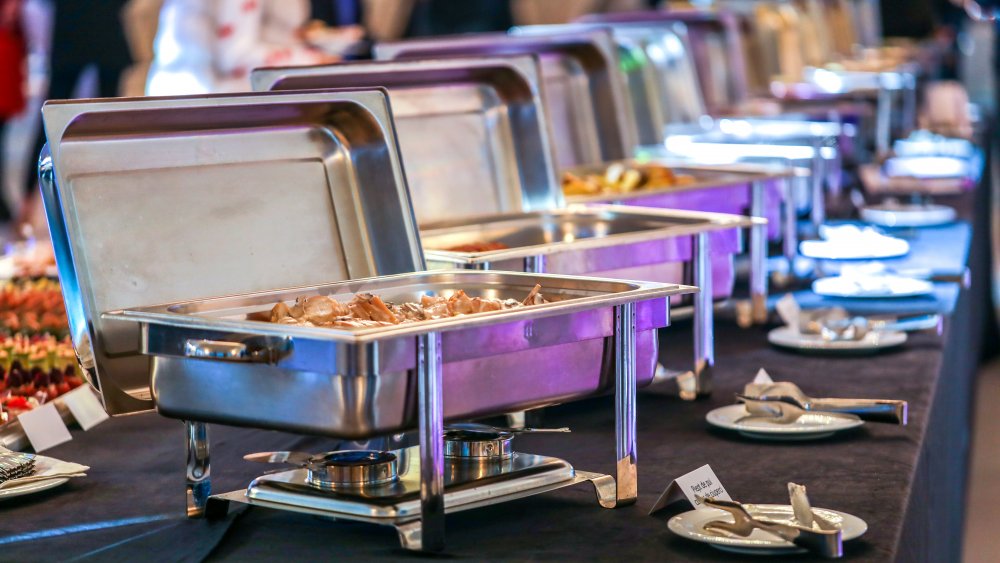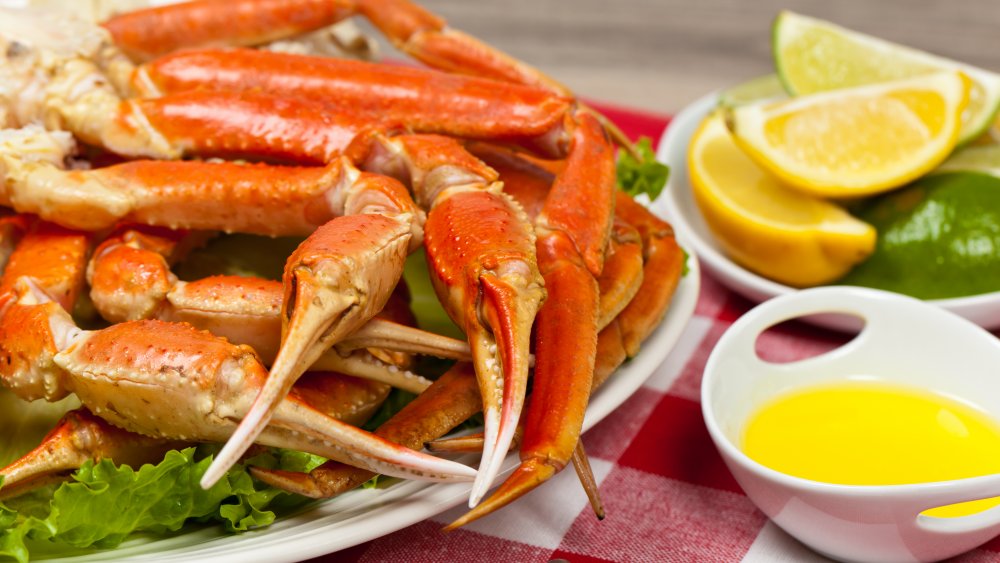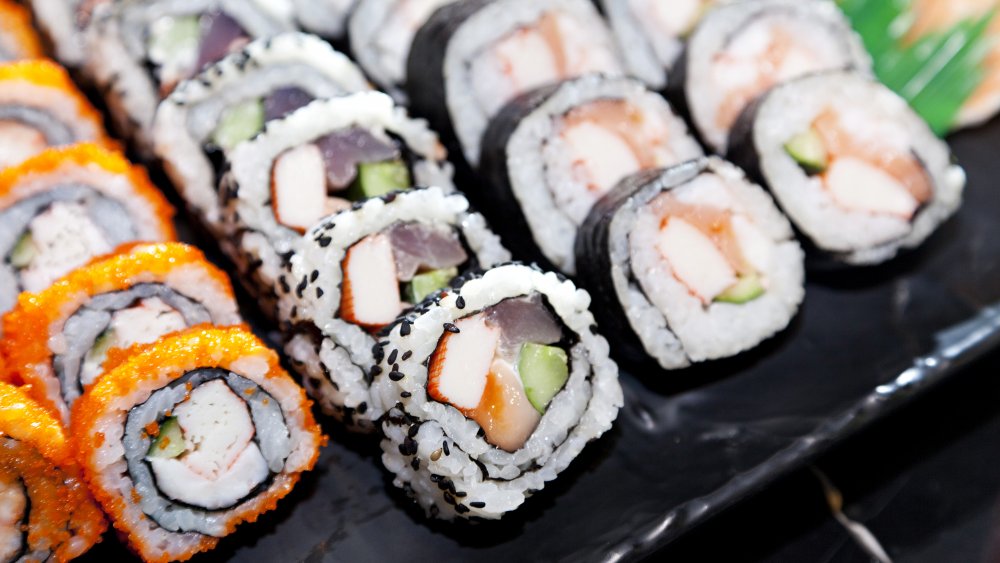The One Food You Should Absolutely Never Touch At A Buffet
All-you-can-eat buffets — depending on who you are, and how much you can eat, can be a great way to indulge to your heart's content. But if you've got a smaller appetite, you may never be able to (or really want to) cram down enough food to justify the cost. Plus, you often don't even get to bring home leftovers for a late-night snack, or tomorrow's breakfast, which is sometimes the best part of eating out; getting two meals for the price of one!
Love 'em, or leave 'em, the one thing we can all agree on about buffets is that they are not really the type of place where you're going to find any really high-end gourmet treats. After all, who'd leave Wagyu beef out on a hot plate where it can just dry up to the point of being indistinguishable from a Dollar Tree ribeye? Not to mention, the only way any buffet is going to keep from going broke, no matter how high the price of admission, is by making use of a certain amount of lower-end ingredients.
While most buffet food, though it can get kind of gross, will probably not actually endanger your health, there is one item common to most all-you-can-eat seafood places that you're probably better off skipping.
You should always pass on the crab legs at a buffet
A Reddit AMA (ask me anything) with the owner of a buffet restaurant answered that all-important question, "What is one item you would advise people to stay away from at an all-you-can-eat buffet?" His all-important answer? Crab legs. Reason? Freshness, or lack thereof. According to the restaurant owner, "I have seen Chinese buffets [presumably the staff or owners] at the fish market going and buying bottom of the barrel seafood including crab legs past their prime. And then they don't steam them properly either to save on volume."
So, do you really want to go through all that time and effort to crack open the legs and extract the meat, only to have it turn out to be a dry, overcooked disappointment that is, as the thread recounts, "past [its] prime?" And then — horrors! — to find out that the "butter" provided for dipping is actually margarine? Yuck. Just...yuck. So not worth the bother.
Another seafood buffet don't, plus a maybe
The Redditor/restaurant owner also advised that oysters aren't really a safe pick, either, especially in the Midwest where they've obviously had farther to travel, no matter their place of origin (since even oysters from overseas arrive at the coastal port cities first). Another commenter remarked that they always followed the advice given by Anthony Bourdain, which is to never to eat mussels or oysters in a restaurant if it's not their specialty, or you're not acquainted with the chef, since even under the best of conditions, such shellfish are very easily spoiled.
Surprisingly enough, sushi tends to be relatively okay to eat, at least if it is being served up by a busy restaurant where the buffet food turns over quickly, and there's little chance the sushi has been sitting out all day. The reason why sushi may be a safer pick than shellfish is that health code standards are stricter for raw fish. Also, restaurants are less able to skimp on the quality of the fresh tuna and salmon that are typically used for buffet sushi.
Even if the sushi is somewhat safer, however, there's another reason you might want to leave it off your plate. With buffet sushi, you may really just be filling up on a lot of rice and seaweed, with very little actual fish.
Skipping buffets altogether is your safest bet
Perhaps the main reason you should pass on any type of dubious seafood (as most buffet seafood tends to be) is due to an entirely reasonable fear of discomfort (or worse). As Consumer Reports points out, improperly stored and/or cooked seafood can lead to a nasty case of food poisoning. It's not only seafood that can make you sick, though. Even at a higher-end buffet where they slice roast meats to order, you're still in danger of getting sick, since meats from the carvery are amongst the restaurant foods most likely to cause food poisoning.
If food safety is of paramount importance, the best thing you can do is to only patronize establishments where your meal will be prepared just for you, and only after you've ordered it. Either that, or stock up on snacks and ready-to-eat meals at Aldi or Trader Joe's, declare your fridge to be a 24/7 all-you-can-eat buffet, and pig out in comfort and safety with no-one to see you stuffing your face.



